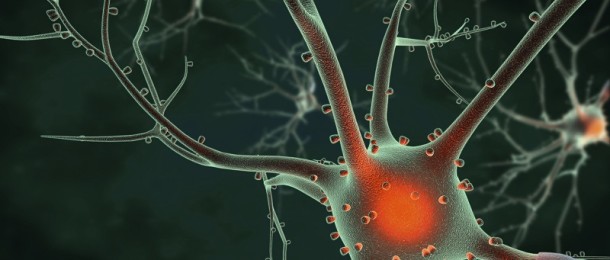5 Common Causes of Chronic Pain

If you suffer from chronic pain then you know just how devastating it can be to suffer without relief. You know you have a pain, you feel sick, but not one of the many doctors you have seen can identify a source for your pain. It must be very frustrating to know that even the doctors don’t have an answer for you.
After many tests, procedures an examinations, medical professionals have offered you no help and have begun to treat you like you are just making up the pain to continue to receive pain medication. But you would do anything not to need the pain medication or the doctors. There may be a new avenue to try, and it focuses on your mental health, not your medical health. There are different causes of chronic pain, which leads to different types of pain being felt by an individual. We’ll explore the common causes of chronic pain, and how to ease this pain.
Causes of Chronic Pain
The brain is so powerful it can make your body think it has pain. In fact, there are many mental illnesses that actually cause physical pains on a chronic basis.
Mental illnesses such as somatoform disorder, conversion disorder or pain disorder can literally make a person feel pain even though there is no medical cause for the pain. These types of pains can be acute or chronic. Acute pains are temporary and don’t last for very long but they are very noticeable and cause you a lot of discomfort. Chronic pain can last for months or even years without any resolution.
Physical pain can act like a signal, letting us know there is more emotional work to be done. This is why it is so important to address any mental health symptoms that could be causing your chronic pain. Some other mental health disorders that have been shown to produce pain are depression and even post-traumatic stress disorder.
Somatoform Disorder
Somatoform disorder is a mental health illness that makes a person feel chronic pain but there is no physical reason for the pain they are feeling. The diagnostic and statistical manual has defined somatoform disorder as a person having one or more physical complaints but when evaluated medically, no source of the pain can be found. Because of this, people seek medical attention rather than psychiatric care.
Unfortunately, they are rarely helped when they see a medical doctor for this because normally, no medical issue can be found. In addition, patients with this disorder do not believe their problem is psychological mainly because they do actually feel pain. They can’t associate their pain as being a brain problem. When someone feels an actual pain, whether real or not, it is hard to convince them that their pain is really in their mind and not their body.
Conversion Disorder
Conversion disorder is defined as losing the functioning of a physical body part but with no physiological reason for the malfunctioning. These can include paralysis, temporary blindness, loss of smell, or loss of voice.
Conversion disorder usually starts after a traumatic event or psychological conflict. People with personality disorders such as bipolar have proven to experience conversion disorder more times than those without a personality disorder.
Symptoms can last a few days or a few weeks. The best treatment is talk therapy and learning how to cope with stress. Working through your mental health issues with a therapist can help relieve and possibly prevent conversion disorder symptoms.
Pain Disorder
This disorder also deals with the chronic pain felt by a person but the diagnosis is usually related to their psychological problem. Symptoms include feeling helpless about the ability to get relief from pain management, insomnia, fatigue, depression, and anxiety. The person with pain disorder cannot function in a job or in social settings due to their disability.
Sometimes doctors prescribe prescription medications such as opiates to these patients thinking they may have fibromyalgia. However, by the time they realize it is a psychological disorder, the patient is already addicted. Convincing the person they do not need pain medication is nearly impossible due to the brain becoming dependent on the drugs. The brain does not want to quit opiates and it will do what it takes to keep you medicated.
Withdrawal from pain medications is also a hindrance to people quitting their use of the drugs. Furthermore, people who are prescribed pain medications do not necessarily consider themselves addicts because their drugs were given to them by a doctor.
Depression and Chronic Pain
Depression contributes greatly to chronic pain involving arthritis, migraines and backaches. Some reports show that even chest pains and digestive problems can be related to depression. Many people diagnosed with mood disorders complain of physical ailments that have caused them physical and mental disabilities.
Depression can make you feel fatigued and it can be a struggle some days just to get out of bed. A person with severe depression can even become neglectful to their physical health as well as their mental health.
If you are dealing with pain that seems to come around for no reason, take an assessment of your level of depression. You may just find that a very treatable disorder like depression is leading to your physical ailments.
Post-traumatic Stress Disorder and Pain
Post-traumatic stress disorder is an anxiety disorder. It can cause physical pains after a traumatic event. Some examples of post-traumatic stress disorder are fighting in combat during war, sexual abuse as a child or adult, witnessing a murder or even witnessing domestic abuse of a parent.
Post-traumatic stress disorder, if not dealt with in therapy, can start to show itself through physical pain. Suppressed symptoms of post-traumatic stress disorder can be damaging to mental and physical health. These symptoms may include body aches, stomach pains, headaches, and trouble sleeping. One report states that up to 35 percent of people with chronic pain have some form of post-traumatic stress disorder.
Cognitive Behavioral Therapy and Healing
So how do you deal with chronic pain that may be related to a mental illness? Seeing a Psychologist is essential for improvement. A mental health professional can correctly diagnose your disorder and set up a treatment plan to help improve your mental health and ease the physical pains you are feeling. Cognitive behavioral therapy and possibly medication can be a great combination in helping you overcome chronic pain caused by mental health disorders.
Now is the time for you to deal with your pain. You deserve to live pain free and if healing your mental health can get you that life, it is worth every effort. Make today your day to start healing!

